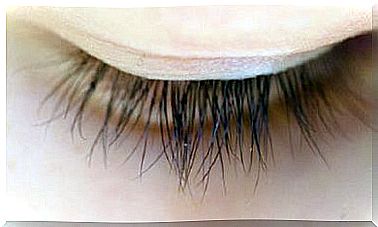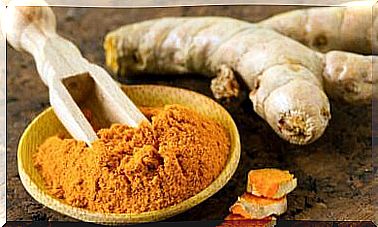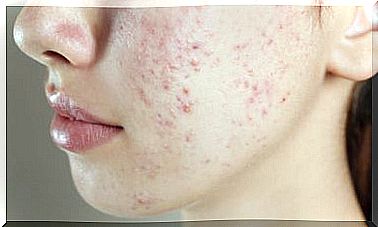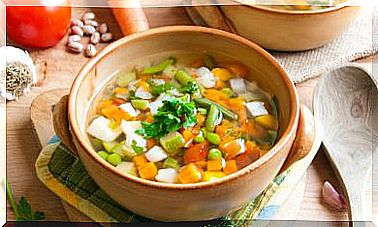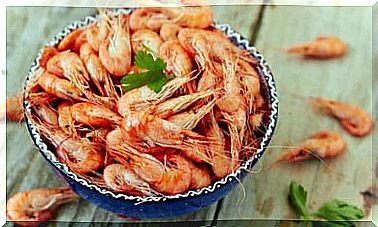The 7 Foods That You Should Include In Your Diet To Control Cholesterol
Beyond including these foods in our routine, to reduce bad cholesterol we must avoid its main sources and follow a healthy, varied and balanced.

Eating habits influence when we try to control cholesterol in the body. It is essential to improve the way you eat, limiting the consumption of fat and increasing the portions of the ingredients that help remove it. Certainly, cholesterol is a type of fat that, in certain measures, the body requires to function in optimal conditions.
Although it is related to many health problems, a small dose participates in the secretion of some hormones and the formation of certain body structures. For example, the liver produces it constantly. However, its levels can also be increased by the intake of some foods that contain it.
As a consequence, the functioning of the circulation and the cardiovascular system are affected. This leads to dangerous, life-threatening conditions.
Foods that you should include in your diet to control cholesterol
We want to share the 7 most important foods that will help you control cholesterol, so that you can begin to include them more regularly in your diet.
1. Oats

Oats are one of the most complete cereals from a nutritional point of view. In fact, it is the healthiest. Contains small amounts of linoleic type fatty acids. These, together with its fiber and lecithin, help reduce cholesterol levels in the blood.
On the other hand, its contribution of avenasterol, a type of phytosterol, reduces the absorption of this lipid in the intestine and slows its accumulation in the arterial walls. The beta glucans contained in oats have also been shown to be beneficial in modulating the lipid profile.
2. Barley
Barley also contains a type of soluble fiber known as beta-glucan. This fiber, after being assimilated in the body, lowers the levels of bad cholesterol (LDL).
Its nutritional composition, similar to that of oats, makes it an excellent food option for patients with hypercholesterolemia.
It contains an antioxidant known as tocotrienol. It is located in the shells of your grains, and helps protect the arteries against oxidative damage.
3. Avocado

Known for its multiple applications in gastronomy, avocado is a delicious food that benefits the health of those with bad cholesterol (LDL).
It contains polyunsaturated fatty acids that, instead of accumulating lipids in the blood, promote the elimination of those that are already present, according to a study published in Nutrition, Metabolism, and Cardiovascular Diseases.
Its fiber and essential amino acids help to metabolize fats more easily. In addition, they prevent them from being absorbed in the intestine. On the other hand, it has plant substances known as stanols and sterols that, in the body, slow down the accumulation of these lipids.
4. Blue fish
Fatty or blue fish is a great ally for patients with hypercholesterolemia and high triglycerides.
Its high concentration of omega 3 polyunsaturated fatty acids, in addition to its antioxidants, improve the elasticity of the arteries while slowing down the formation of plaque on their walls.
These healthy fats act as cleaning agents in the blood. Well, they remove lipids that are not needed and increase arterial vasodilation.
Among the recommended varieties are:
- Sardines
- Tuna.
- Salmon.
- Anchovies.
- Anchovies.
- Mackerel.
- Chicharro.
- Herring.
5. Green leafy vegetables

Green leafy vegetables have become very famous around the world for being excellent allies to combat excess weight.
Its low caloric content and high contribution of essential nutrients contribute to improving metabolic activity for optimal use of calories.
Beyond this, they contain fiber and antioxidant substances that have been shown to promote the reduction of bad cholesterol (LDL) that can put cardiovascular health at risk.
Its small contribution of stanols and sterols slows the intestinal absorption of this lipid and helps maintain healthy arteries.
6. Legumes
Regular consumption of legumes can prevent and control bad cholesterol (LDL) levels. This thanks to its high content of dietary fiber.
This essential nutrient, supported by its antioxidant compounds, slows the absorption of this fatty compound in the intestine, keeping only the amount necessary for the body.
By the way, they are excellent allies to cope with excess weight, a condition that also influences the lack of control of this substance.
The recommended ones are:
- Beans.
- Lentils.
- Green peas.
- Garbanzo beans.
- Soy.
7. Blueberries

Blueberries are small fruits rich in antioxidants and dietary fiber, the assimilation of which helps to curb excess cholesterol.
Its ingestion in its natural state, either through the fruit or the juice, cleans the arterial walls and removes the plaque that increases the risk of obstruction.
This allows to reduce the risk of disorders of the cardiovascular and circulatory system, promoting the well-being of the body.
Improve diet to control cholesterol
Finally, it is good to make it clear that, although all these foods help control cholesterol, or reduce it, its intake must be supported with a healthy eating plan.
It is useless to consume them regularly if you continue to eat other cholesterol-rich ones in excess.
